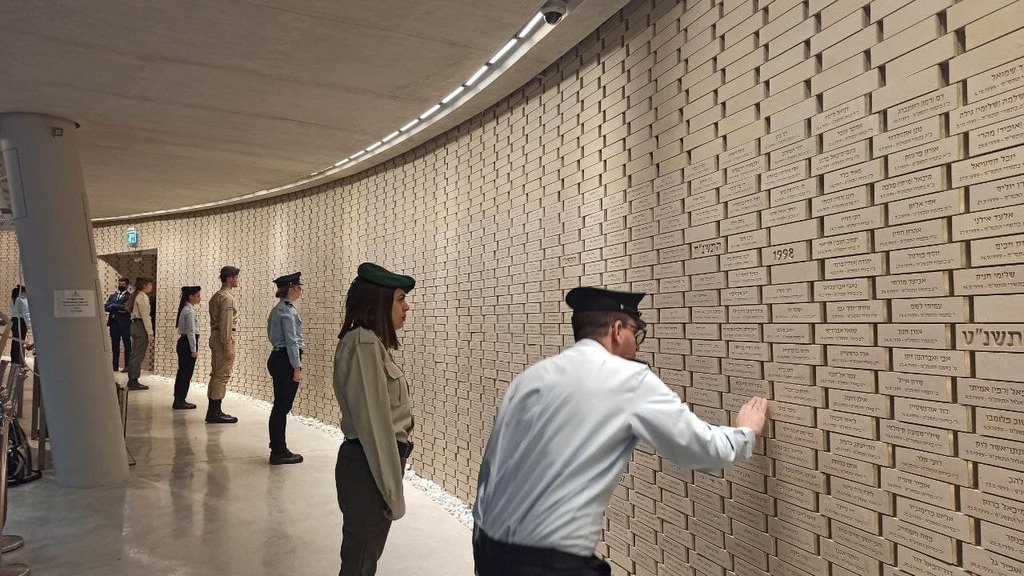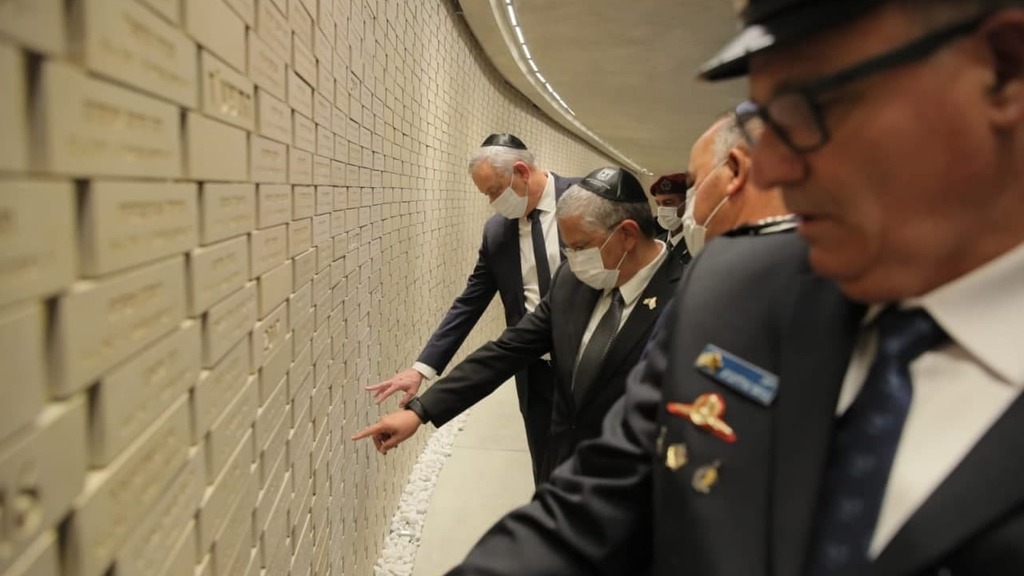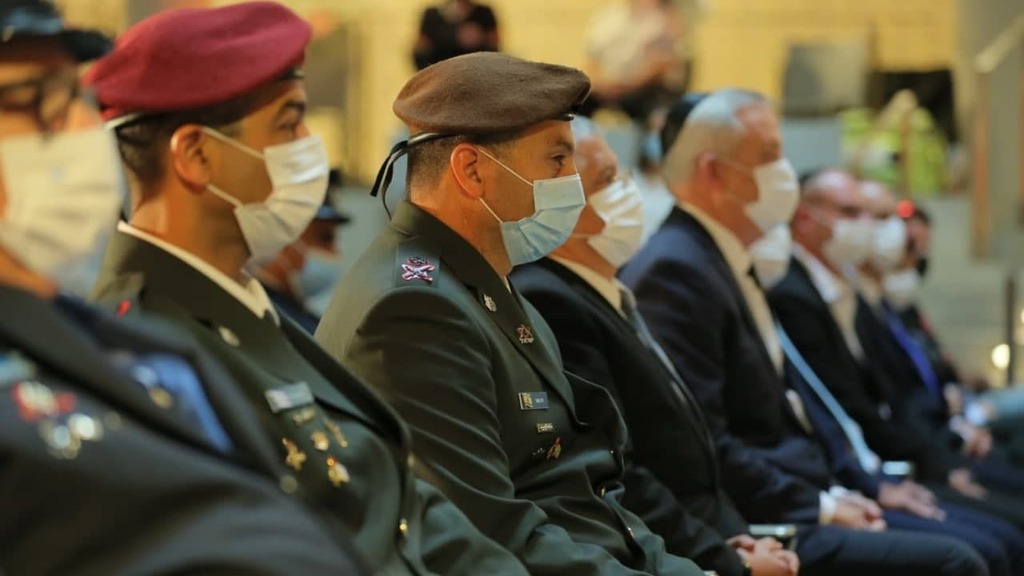Defense Minister Benny Gantz called Wednesday for Israeli unity as the country paused to remember its fallen soldiers and victims of terror on its annual Memorial Day.
Calling Israel a "singular state," Gantz used his speech during a ceremony at the Kiryat Shaul military cemetery in Tel Aviv to lament what he said were growing divisions between sectors of Israeli society.
5 View gallery
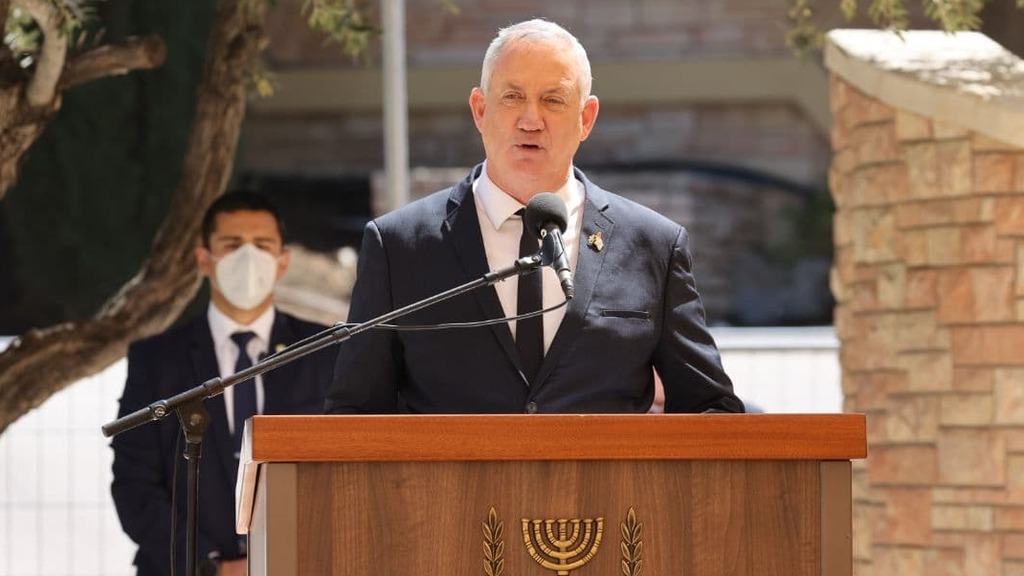

Defense Minister Benny Gantz speaks at a ceremony at Kiryat Shaul military cemetery in Tel Aviv
(Photo: Moti Kimchi)
"Forgive me if this time I talk not just about the fallen but also about us, the living," the former IDF chief of staff said.
"We come together and unite in wars, tragedies, days of remembrance, sometimes even for national achievements. At other times, we increasingly forget this pledge, this comradeship. Lately we have witnessed progressively divisive discourse, and sometimes it seems that what was once sacred has gone and is no more," he said.
"Around us are about 3,000 fallen who paid with their lives in the ongoing campaign. They were religious and secular, men and women, straight and LGBT, leftists and rightists. No one asked them about their political persuasions before they went into battle."
The defense minister warned that ongoing divisions would only serve to make Israel weaker.
"If God forbid we split into sub-tribes, it will be easier on our enemy," he said.
5 View gallery
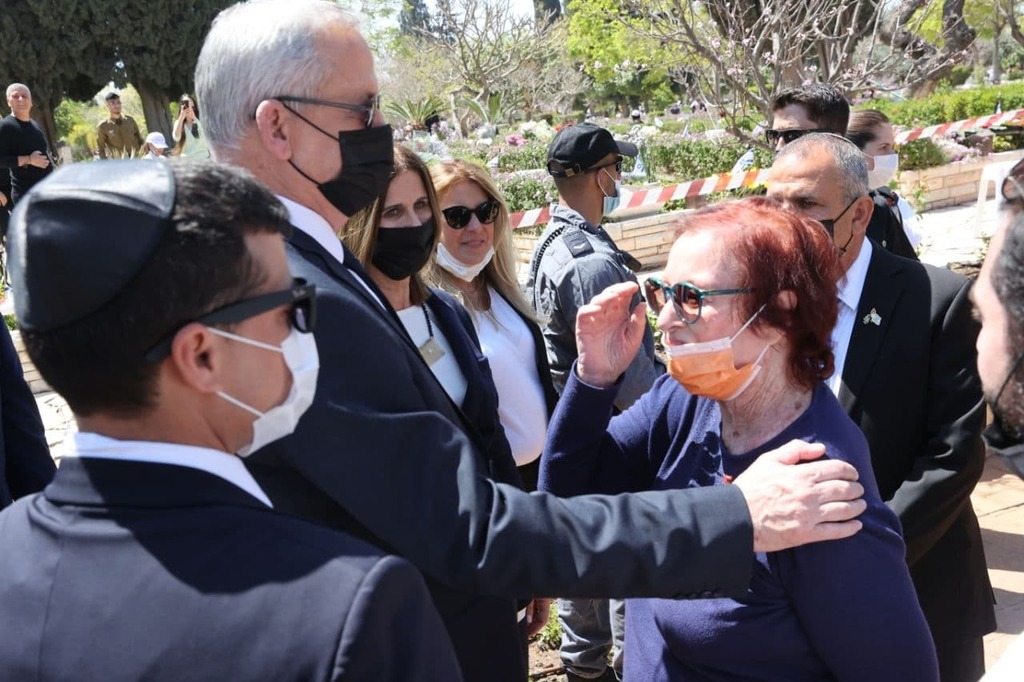

Defense Minister Benny Gantz speaks with the relatives of the fallen at a ceremony at Kiryat Shaul military cemetery in Tel Aviv
(Photo; Moti Kimchi)
At the close of the ceremony, Gantz walked around the graves, talking to the representatives of bereaved families.
One of those present castigated the minister over the recent self-immolation of an IDF veteran who was suffering from PTSD.
"A wounded veteran set himself alight on your watch," the man said of 26-year-old Gaza war veteran Itzik Saidian, who is now in critical condition.
Gantz responded: "This will be examined, faults will be corrected."
Earlier Wednesday, Gantz told a ceremony in Jerusalem to read out the names of the fallen that he carries with him every day the names and faces of those he has personally lost.
Officials from the country's security bodies gathered for the ceremony at the National Memorial Hall For Israel's Fallen at Jerusalem’s Mount Herzl.
“This terrible emptiness, which no words can describe,” said Gantz. “In war-saturated Israel, each and everyone knows someone who had fallen. During almost 40 years of service in the IDF, and even now, I carry the faces and names of those I knew who have fallen.”
The ceremony began with a recitation of the “Yizkor” prayer of mourning delivered by the director-general of the Defense Ministry, Maj. Gen. (Res.) Amir Eshel.
"Here in this hall all of the fallen are equal," said Gantz after the prayer was said.
"Every fallen - no matter their rank, gender or origin - has a place. Every fallen is unique, and almost every day there is a memorial service for each of them. Together though, they are all of our fallen, a collective hole in the heart of the nation,” he said.
“On Monday I passed the wall of this hall with the U.S. Secretary of Defense Lloyd Austin. We talked about my personal journey after the 2014 Gaza War, after which I visited the family of each fallen, each one with its own heartbreaking story.”
"On this day, the private memory of each and every one of us connects to the memory of all of us as a nation. The National Memorial Hall, where we are now, the naming ceremony that will begin momentarily, are two examples of this connection. Every name is a world," he said.
After Gantz’s speech, representatives from the IDF, the police and the Prison Service began reading the names of Israel’s fallen, whose names are engraved on the bricks that make up the memorial hall’s wall.
Last year, the ceremony was held in a different format due to the coronavirus restrictions, which prevented Gantz from taking part in the ceremony.


